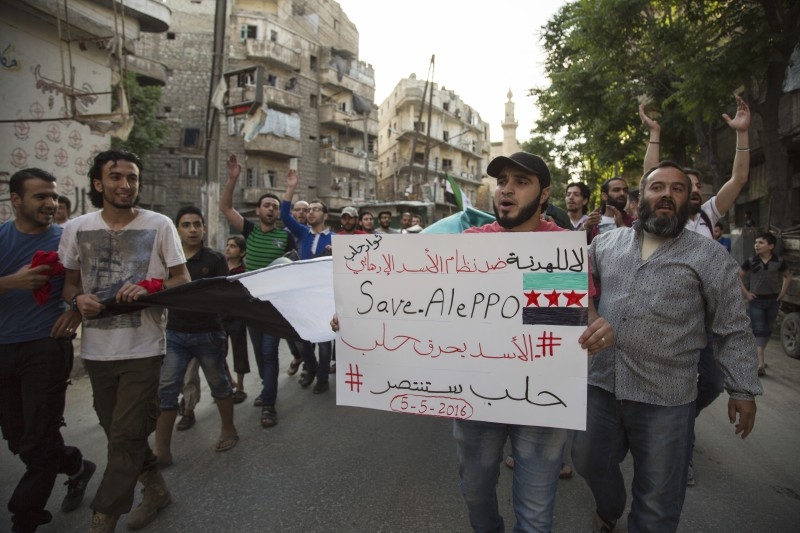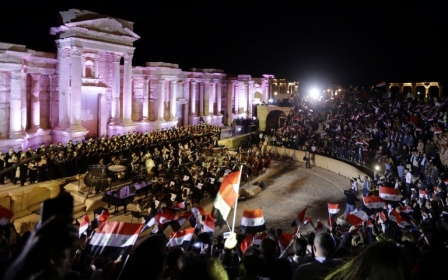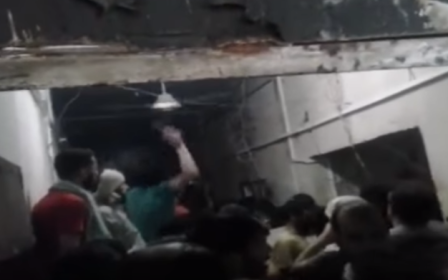Residents return as truce extended in Syria's Aleppo

Displaced families returned home and schools reopened in rebel-held districts of Syria's Aleppo on Saturday after a temporary truce was extended for 72 hours in the battleground northern city.
Residents trickled back into eastern areas of Aleppo, encouraged by a halt in the deadly violence that hit last month, an AFP reporter said.
More than 300 civilians were killed in two weeks of fighting in the divided city before the truce took hold Thursday, with government air strikes on its opposition-held east and rebel shelling on its government-controlled west.
"I decided to come home after relatives told me it was calm," father-of-six Abu Mohammed said.
"We left because it was carnage here. The air strikes were incredible," said the resident of the rebel-held Kalasseh neighbourhood.
The international community hopes that a drop in fighting can revive faltering peace talks to end a five-year war that has killed more than 270,000 people and displaced millions.
Schools in Aleppo's east reopened on Saturday after staying closed for more than two weeks, the AFP reporter said.
"Almost all students have come back, apart from those who fled their neighbourhoods," a primary school teacher in the Shaar district said.
Russia's defence ministry said the truce had been extended "in order to prevent the situation from worsening" just minutes before the initial 48-hour truce for the city was due to expire.
"The regime of silence in the province of Latakia and in the city of Aleppo has been extended from 00:01 [local time] on May 7 [2101 GMT Friday] for 72 hours," the ministry said in a statement.
Other battle fronts
The truce held in Aleppo on Thursday and Friday after violence in the city last month severely threatened a nationwide ceasefire between President Bashar al-Assad's forces and most rebel groups.
But there were heavy clashes south of the city on Thursday and Friday with scores of fighters killed in battles between the Nusra Front and allied rebel groups and pro-government forces in and around the village of Khan Tuman.
Al-Qaeda-aligned Nusra has been excluded from ceasefire agreements because it is considered a terrorist organisation by the United Nations.
The United States, which has been working with Moscow to pressure Assad to stop the violence and revive the 27 February cessation of hostilities, also confirmed the extension.
"While we welcome this recent extension, our goal is to get to a point where we no longer have to count the hours and that the cessation of hostilities is fully respected across Syria," US State Department spokesman John Kirby said.
Fighting has also been reported in the rebel bastion of Eastern Ghouta outside Damascus and on the outskirts of Aleppo city.
The Islamic State (IS) group meanwhile clashed on Friday with government forces near the divided eastern city of Deir Ezzor, the Syrian Observatory for Human Rights said.
The violence killed five militants and around 10 pro-Assad fighters, whose bodies IS displayed on the walls of a public garden in the city, the UK-based monitor said.
Denial over Idlib attack
An international outcry has grown over air strikes on Thursday on a camp for the displaced near the Turkish border that left at least 28 dead including women and children.
The observatory, which relies on a wide network of sources inside Syria for its information, was not able to say who was behind the raid.
Anti-Assad activists have blamed the government, but the Syrian military has denied the accusation.
Russia's military insisted no aircraft flew over the camp on Thursday, and suggested Nusra could have shelled it.
The United States has said that the circumstances are unclear.
"We're still gathering information right now and are not in a position to definitively say exactly what happened there," Kirby said.
Government aircraft have previously targeted rebels other than Nusra and IS, which are not covered by the 27 February ceasefire.
Russia also launched air raids in support of Damascus in September, and a US-led coalition has conducted air strikes against IS in Syria since 2014.
UN Secretary-General Ban Ki-moon said he was "outraged" by the attack on the camp and that those responsible must face justice.
Ban demanded once again that the UN Security Council refer Syria to the International Criminal Court so that the tribunal based in The Hague can open investigations into possible war crimes.
Hassan Hassan, a Syrian analyst writing for the Tahrir Institute for Middle East Policy, said that an end to hostilities in Aleppo could provide an opportunity to tackle the influence of Nusra on the city.
"The international community can present a different model for Aleppo that moves away from continued bombardment and attempts to encircle or counter-encircle the opposite side," he wrote.
"This model should put an end to the regime’s indiscriminate tactics and help people from Aleppo return to rebuild their neighbourhoods, and for the rebels to refrain from bombing civilian areas under the regime control. Such a situation will undoubtedly shift the focus onto Jabhat al-Nusra, as it did in Idlib last month when armed groups and civilians rose up against al-Qaeda’s local branch after violence was reduced there."
New MEE newsletter: Jerusalem Dispatch
Sign up to get the latest insights and analysis on Israel-Palestine, alongside Turkey Unpacked and other MEE newsletters
Middle East Eye delivers independent and unrivalled coverage and analysis of the Middle East, North Africa and beyond. To learn more about republishing this content and the associated fees, please fill out this form. More about MEE can be found here.





